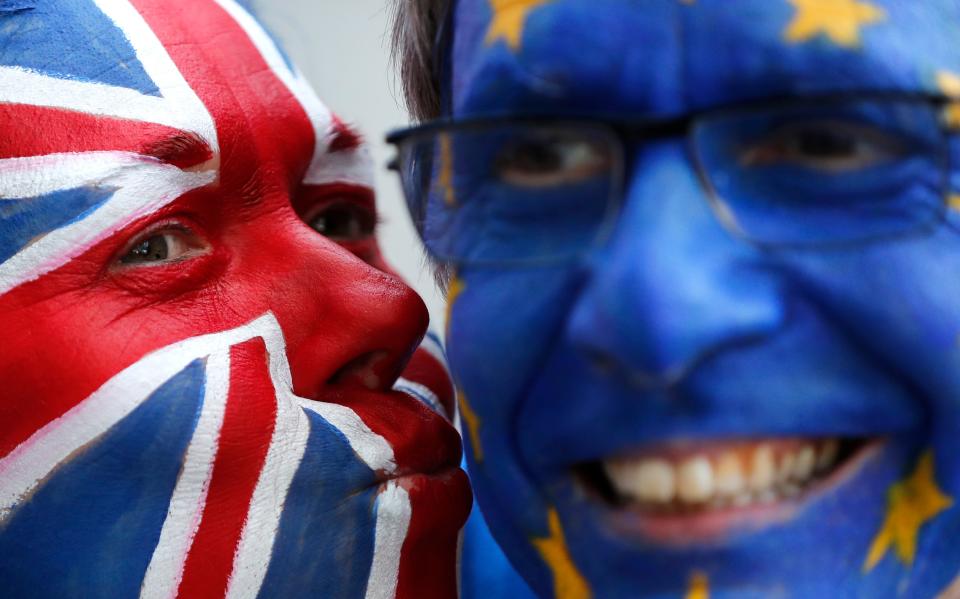With clock ticking, EU grants Britain Brexit delay

LONDON – European Union leaders on Thursday granted the United Kingdom an extension to its departure from the bloc – scheduled in eight days.
Britain will be allowed to postpone Brexit until May 22 if Prime Minister Theresa May is able to get British lawmakers to approve her unpopular exit deal with the EU.
If she can't, a shorter delay will be given, until April 12, to "indicate a way forward."
Unanimous approval by the EU's 27 leaders (minus Britain) was needed for the delay and discussions at the EU's headquarters in Brussels ran late into the evening.
European Council President Donald Tusk said the delay means "the cliff-edge date" on which Britain would tumble out of the bloc without agreement has been postponed.
"What the decision today underlines is the importance of the House of Commons passing a Brexit deal next week so that we can bring an end to the uncertainty and leave in a smooth and orderly manner," May said in a statement.
Still, Britain's Parliament has twice rejected May's EU deal, and polls show the British public, not just lawmakers, remain deeply divided over leaving the EU.
"There is no single will of the people over Brexit," said Sara Hobolt, a professor of European politics at the London School of Economics. "The only thing people seem to agree on is that the government is doing a terrible job at handling it."
May is expected to ask lawmakers to vote on her deal for a third time next week.
She said in a short statement addressed to the British public on Wednesday night that a delay to Brexit was a "matter of great personal regret."
"Of this I am absolutely sure. You, the public, have had enough," she said. "You just want us to get on with it and that is what I am determined to do."
More: Brexit: Britain's Parliament votes to delay EU departure
However, May faces a separate British parliamentary hurdle before she can do that: House Speaker John Bercow has ruled her EU deal would have to have changed significantly in order to justify asking lawmakers to vote for it a third time.
Adding further pressure on May, the EU has said it is not willing to renegotiate that deal, which was the product of two years of back and forth discussions.
Both sides are trying to avoid a "no-deal" Brexit, the default legal position if no arrangement is reached before March 29. Under a "no-deal" Brexit, EU legislation Britain adopted over decades covering a range of issues from transportation policy to workers' rights, from security to public health, would effectively evaporate overnight.
Britain's military has activated a team in "very high readiness mode" in a nuclear-proof bunker under the Ministry of Defense in the event of a "no-deal" Brexit.
A petition calling on May to unilaterally cancel Brexit by revoking Article 50, the domestic legislation that underpins it, has received more than a million signatures Thursday. The high volume crashed the Parliament's website. It also means lawmakers are required to formally debate the measure, although it is not legally binding.
The outcome of Brexit negotiations and votes that take place over the next week could also determine whether May is ousted from power and if a general election called.
Anand Menon, a professor of politics at King's College London, said if May is forced from office Britain "really would be in unstable, uncharted waters" in terms of next steps over Brexit, but also with respect to forming a viable new government.
More: Trump: Brexit debate is tearing countries apart

This article originally appeared on USA TODAY: With clock ticking, EU grants Britain Brexit delay

